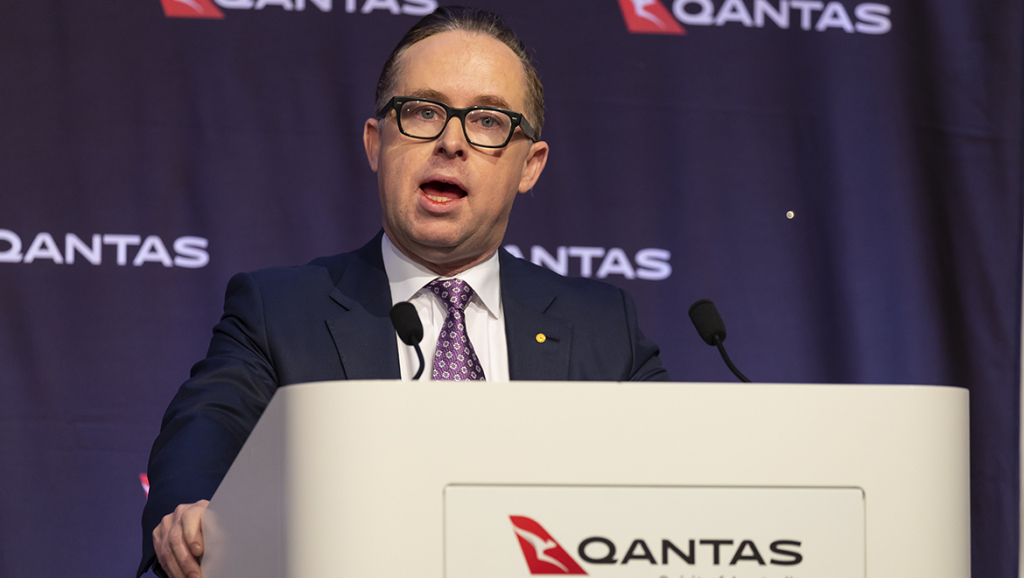
Qantas has announced it will introduce a two-year wage freeze on all new enterprise agreements across the Qantas Group, as it seeks to reduce its annual costs by $1 billion by FY23.
In a trading update, the flag carrier said that its next round of enterprise agreements will include the two-year wage freeze, and stipulate a 2 per cent annual increase thereafter, down from 3 per cent before the COVID-19 pandemic.
The new conditions will also apply to management positions, Qantas said.
Other attempts to cut costs include the offer of voluntary redundancy for international cabin crew, following the news that Qantas has pushed back its intentions to restart international services until at least December.
According to Qantas, the current voluntary redundancy offer “will be run as an expression of interest program”, and the airline expects to see “several hundred applications”.
Qantas said the number of applications it accepts will be “balanced against retaining key capability for the longer term”.
As it stands, around 6,000 of Qantas’ 22,000-strong workforce is still on stand-down, including the majority of its international crew.
Meanwhile, Qantas has said it will also reduce its front-end commissions paid to travel agents on international flight tickets from 5 per cent to 1 per cent from July 2022, again in an attempt to reduce ongoing annual costs.
“Managing costs remains a critical part of our recovery, especially given the revenue we’ve lost and the intensely competitive market we’re in,” chief executive Alan Joyce said in the ASX announcement.
Trade union TWU’s national secretary Michael Kaine criticised Qantas’ decision to freeze wages and stunt future wage growth, in light of the fact that the airline welcomed over $2 billion in government bailouts since the beginning of the pandemic.
Kaine said that Qantas’ latest management decision sees the airline “acting like a dictator”, by “using public resources to shore up its position, cut jobs and impose unilateral decisions on its workforce”.
The TWU pointed out that in 2014, Qantas posted a $2.8 billion loss and imposed a similar two-year wage freeze on its workforce, from which the union believes Qantas workers’ earnings never recovered.
“There is a system of enterprise bargaining in place so that both sides can sit down and compromise,” Kaine said, adding that the wage freeze announcement “flies in the face of enterprise bargaining”.
“This year Qantas will have received $2 billion in federal government funding. On top of that the airline has wrung more public funding from state governments following recent announcements.
“We cannot see the benefit of this funding for the public when it continually results in job losses, outsourced workers and lower wages.”
It comes as Qantas gears up to see an annual loss of more than $2 billion in the 2021 financial year, following its half-year loss of $1.03 billion, reported in February.
Assuming the country sees no further snap border closures or restrictions on domestic travel, Qantas is optimistic it will return an underlying positive result in its earnings before interest, taxes, depreciation and amortisation (EBIT) of $400-450 million for the full-year FY21.
However, when including the significant costs of redundancy payouts, aircraft write downs, and non-cash depreciation charges, Qantas is set to see a statutory loss of over $2 billion before tax.
Despite this, Qantas remains optimistic that increasing consumer confidence in domestic travel and the strong performance of its freight and loyalty divisions will increase profitability moving forward, with the group intending to reach statutory free cash flow positive by the second half of FY21.
The airline said corporate travel has now hit 75 per cent of its pre-pandemic levels, while leisure demand also continues to improve.
As it stands, the Qantas group is on track to reach 95 per cent of its pre-COVID domestic capacity by mid-2021, and is still anticipating for Jetstar to achieve 120 per cent of its pre-COVID capacity by later this year.
















Warwick
says:Yet again, TWU hasn’t got a clue of what a business has to do to stay solvent in this pandemic climate.
The unions’ pushed, & pushed from the ‘70’s onwards, to have wages literally ‘sky high’.
The ‘golden ages’ for airline employees’, & millions’ of others’, too, ended the moment China released the covid virus.
What this union twit said proves unions’ are totally & utterly irrelevant in today’s world.
Mitchell
says:And yet, Virgin CEO, Hrdlicka, used this a cheap shot against QANTAS.
She can’t talk, given her callous faux pas recently.
BTW, her company sacked 3000 staff, when it went into insolvency, April 2020.
It’s only a DOM airline now, & in not a good way, by any means.
Maybe she needs someone at Virgin to temper her conversations’, as she seems very good at foot-in-mouth ‘disease’.
Steve A
says:Wage freezes for QF top management have little effect upon them, as they pay themselves much, much more in the form of bonuses and free shares.
Apply the freeze to the QF management ‘extras too, and we might start to believe that AJ and his top management actually care about shareholders and are not once again self-serving.